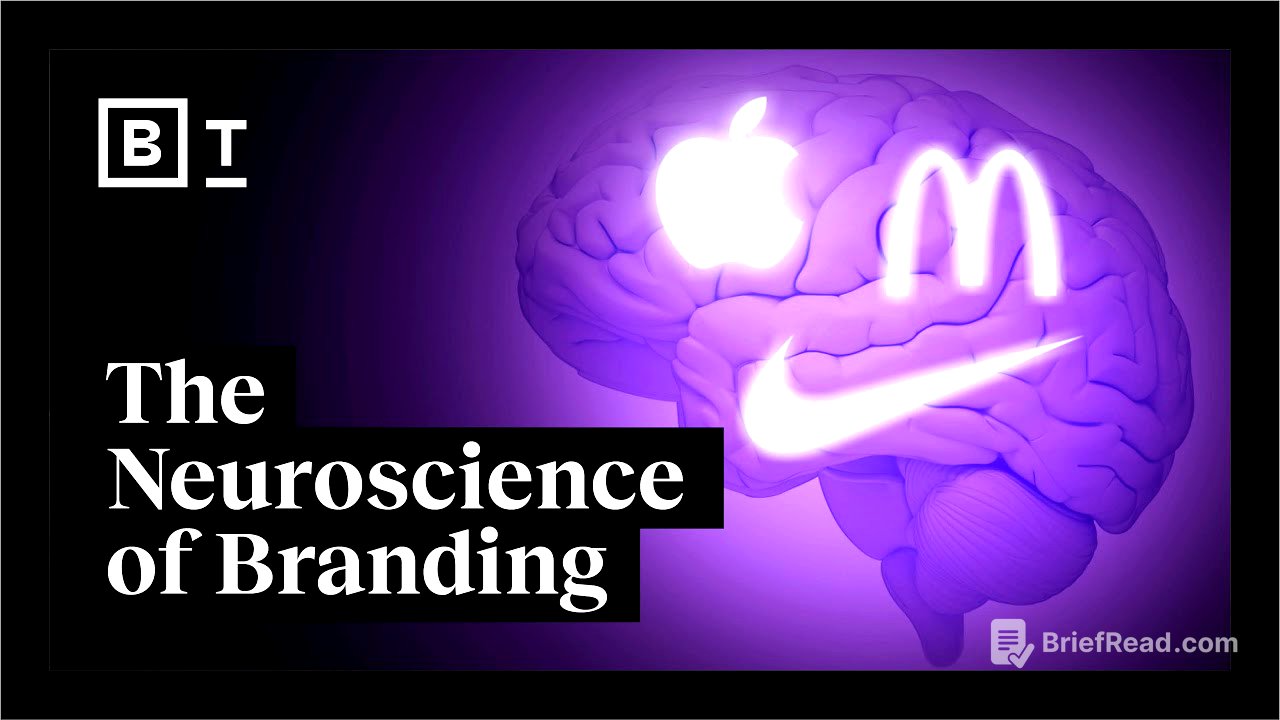TLDR;
This video explores the subconscious influence of brands on consumer behavior and identity. It discusses how brands can shape our choices, sometimes irrationally, and how consumers often identify with brands as a form of self-expression and affiliation. The video also touches on the neuroscience behind brand loyalty, revealing how our brains react to brands in ways we may not consciously realize, and concludes by emphasizing the importance of being aware of brand influence to make more informed choices.
- Brands influence consumer behavior beyond the point of sale.
- Consumers often identify with brands as a form of self-expression.
- Neuroscience reveals subconscious emotional connections to brands.
- Awareness of brand influence is key to making informed choices.
The Irrationality of Brand Choice [0:00]
Consumers often choose specific brands like Coke, Tylenol, or Levi's, even when generic alternatives offer the same functionality. This challenges the economic assumption that consumers are rational actors who always seek the best value. A study at Duke University demonstrated that subliminal exposure to the Apple logo improved participants' performance on creative tasks compared to exposure to the IBM logo, suggesting that brands like Apple cultivate associations with creativity and innovation that influence behavior beyond the product itself. The true power of brands lies in their ability to influence our behavior in ways that extend beyond the point of sale.
Brands as Identity [1:18]
Choosing a brand is an act of creating and expressing one's identity. Selecting Nike over Under Armour, for example, signals different affiliations with sports: Nike emphasizes performance, while Under Armour represents the underdog mentality. Consumers choose brands that align with their self-perception and stage in life. This relationship can deepen to the point where consumers identify with a brand like family, defending it against criticism as if it were a personal attack.
The Neuroscience of Brand Loyalty [2:27]
People relate to brands in a similar way they relate to other people, expressing love or hate. Neuroscience research, using MRI scans, reveals the subconscious emotional connections consumers have with brands. iPhone users showed an empathy response in their brains towards Apple, similar to how they would react to family members. Interestingly, Samsung users didn't show positive responses to their own brand but exhibited "reverse empathy" by reacting positively to negative news about Apple, suggesting their loyalty is driven by dislike for Apple rather than love for Samsung. These subconscious reactions often differ from what consumers consciously report feeling.
Making Informed Choices [3:55]
Consumers are often unaware of the self-expressive value that drives their brand choices. Brands have significant power in shaping consumer decisions, raising ethical, legal, and societal implications. To make informed choices, it's crucial to be aware of the influence brands hold and to pause and consider the reasons behind purchasing decisions. Even those who claim to reject brands are, in effect, creating an "anti-brand" brand. Brands have stepped in to fulfill the fundamental human need for support systems, acting as pillars of identity in a way that traditional institutions once did.









